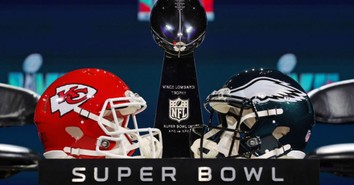The Light of the World and a Personal Relationship with Him
President Biden hosted the annual White House Hanukkah Party last night; invitees included Holocaust survivors and leaders from across Jewish religious denominations. However, I’m thinking today of different ceremonies held recently in dark places: some eight hundred menorahs from Israeli children who were evacuated from the area around Gaza were delivered to IDF soldiers fighting in the Gaza Strip. As they lit these candles on the front lines, families of Israeli hostages held by Hamas held their own Hanukkah observance in Tel Aviv.
Meanwhile, in another moving act of solidarity, German Chancellor Olaf Scholz lit the first candle on a huge menorah in front of Berlin’s iconic Brandenburg Gate. “I wish that the candle of Hanukkah will shine far beyond this square and much longer than just for the eight days of Hanukkah,” he said while wearing a black velvet skullcap.
As Jews around the world grieve the atrocities of Hamas’s October 7 invasion, global solidarity with them both as a people and as a nation is vitally significant.
However, there’s a problem with conflating the two, one we urgently need to understand in our conflicted day.
When one day of oil lasted eight days
Hanukkah originated in the second century BC when Greco-Syrian rulers took over the Jewish temple and outlawed Judaism. Judah the Maccabee led his fellow Jews to defeat one of the mightiest armies on the earth, drive them from the land, and reclaim the temple. However, when they sought to light its menorah (the seven-branched candelabrum), they could find only a single cruse of olive oil that had escaped contamination by the Greeks.
Miraculously, when they lit the menorah, the one-day supply of oil lasted for eight days until new oil could be prepared under conditions of ritual purity. To commemorate and publicize this miracle, Jewish leaders instituted the festival of Hanukkah (meaning “dedication” and pointing to the rededication of the temple).
Jews around the world are observing that miracle this week. Some are deeply devout, living daily by the 613 laws of Judaism. Others are less so. Still others are secular, identifying with Judaism as their race rather than their religion. But all are united in their commitment to their people and to the tiny nation that was founded to ensure their survival.
This conflation of race and religion is typical for other religions as well. Most Muslims were born into Islam. The same holds true for Buddhists and Hindus. Their religion is a component of their family origin and, likely, their racial demographic.
Unfortunately, many think the same is true for Christianity—including many Christians.
What people don’t understand about Christianity
Do you ever wonder why so many wars are fought in the name of religion?
The present conflict in the Middle East is one example: Hamas is convinced that Allah intends them to have the same land Jews are convinced Yahweh promised to them. Skeptics often point to religious wars waged across human history as evidence that religion does more harm than good.
Here’s what they’re missing: true Christianity is not a religion about God but a deeply personal, transformational relationship with him.
Jesus was adamant: “Unless one is born again he cannot see the kingdom of God” (John 3:3). When a person places their personal faith in him as their personal Redeemer, they become a “new creation” (2 Corinthians 5:17). Peter said of this experience: “According to [God’s] great mercy, he has caused us to be born again to a living hope” (1 Peter 1:3). When we ask Christ to forgive our sin and become our Lord, he makes us into the “children of God” (John 1:12).
Now, when we submit our lives to his indwelling Spirit (1 Corinthians 3:16; Ephesians 5:18), the Spirit makes us more like Christ (Romans 8:29) by manifesting his character in and through our lives (cf. Galatians 5:22–23). As we worship, pray, study Scripture, and live biblically, we grow in grace as the new people of God (2 Peter 3:18).
Such people love their enemies and pray for their persecutors (Matthew 5:44). If they are walking in the Spirit, they do not initiate conflict but seek to advance justice and peace (Micah 6:8; Matthew 5:6, 9).
What “hinders our spiritual life more than anything else”?
You knew these theological truths before I recounted them. However, we must beware of the same temptation that adherents of religion face.
I define religion as the human attempt to please and secure the blessing of God (or the gods). We choose to attend services at a church, synagogue, temple, mosque, or shrine and to invest money and time in religious activities. All of this is on our terms, done as we wish. All the while, we hope that God (or the gods) will reward our religiosity with benefits that outweigh its costs.
Since 85 percent of the planet’s population identifies as “religious,” I just described nearly seven billion people. How is transactional religion working for the world?
Oswald Chambers observed, “The characteristics of individuality are independence and self-assertiveness. It is the continual assertion of individuality that hinders our spiritual life more than anything else.” This is why, as Dietrich Bonhoeffer noted in The Cost of Discipleship, “When Christ calls a man, he bids him come and die.”
During this Advent week of peace, if you would know true peace, trade a transactional religion about Jesus for a transforming relationship with him. Submit all that you have and are to him as a “living sacrifice” (Romans 12:1). Ask him to take away anything that is not his best for you and add anything that is. Ask His Spirit to make you more like Jesus than you have ever been before. And know that he delights to answer your prayer, to the glory of God.
Watchman Nee said, “A born-again person ought to possess unspeakable peace in the spirit.”
Do you?
If not, why not?
Photo Courtesy: Unsplash/DavidsonLuna
Publish Date: December 12, 2023
Jim Denison, PhD, is a cultural theologian and the founder and CEO of Denison Ministries. Denison Ministries includes DenisonForum.org, First15.org, ChristianParenting.org, and FoundationsWithJanet.org. Jim speaks biblically into significant cultural issues at Denison Forum. He is the chief author of The Daily Article and has written more than 30 books, including The Coming Tsunami, the Biblical Insight to Tough Questions series, and The Fifth Great Awakening.
The views expressed in this commentary do not necessarily reflect those of CrosswalkHeadlines.
For more from the Denison Forum, please visit www.denisonforum.org.
The Daily Article Podcast is Here!







